We developed click editors, comprising HUH endonucleases, DNA-dependent DNA polymerases and CRISPR–Cas9 nickases, which together enable programmable precision genome engineering from simple DNA templates.
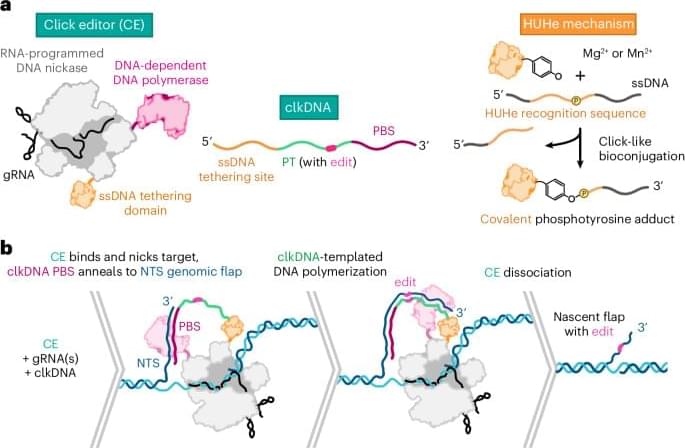

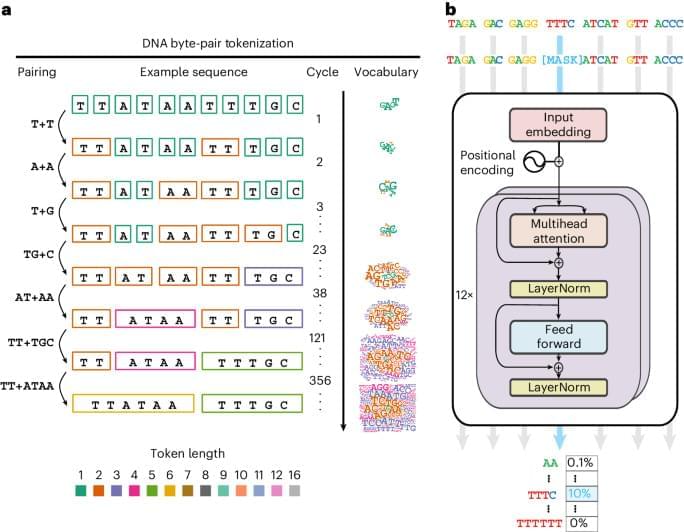
Genomes can be modelled with language approaches by treating nucleotide bases A, C, G and T like text, but there is no natural concept of what the words would be and whether there is even a ‘language’ to be learned this way. Sanabria et al. have developed a language model called GROVER that learns with a ‘vocabulary’ of genome sequences with byte-pair encoding, a method from text compression, and shows good performance on genome biological tasks.

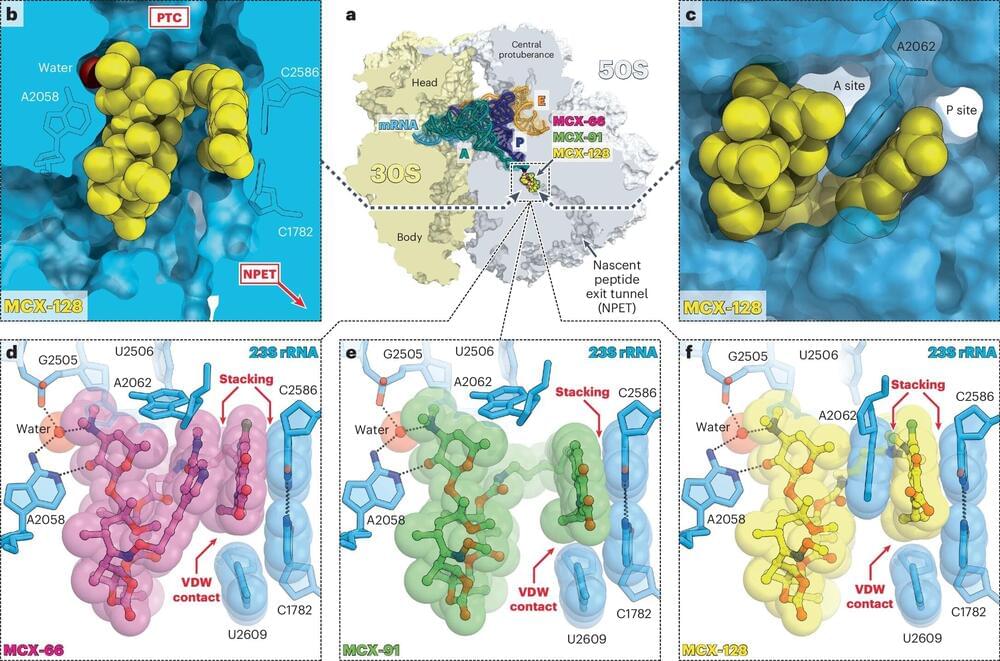
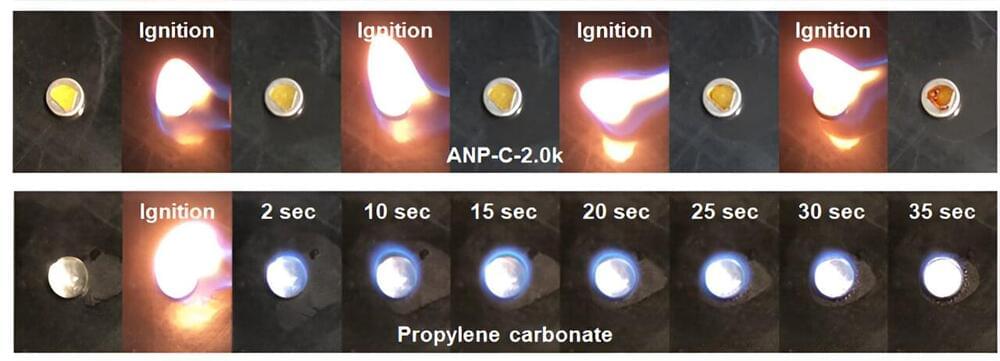
In recent years, batteries have become ubiquitous in consumers’ daily lives. However, existing commercial battery technologies, which use liquid electrolytes and carbonaceous anodes, have certain drawbacks such as safety concerns, limited lifespan, and inadequate power density particularly at high temperatures.
Yet, there is an increasing need for batteries that can operate in extreme conditions, such as the high temperatures required in various industrial sectors, including medical device sterilization, subsurface exploration, and thermal reactors.
This has prompted researchers to search for solid electrolytes that are safe and compatible with lithium metal anodes, which are known for their high theoretical specific power capacity.
From 2018, Dr. Jon LaPook’s groundbreaking report following an Alzheimer’s patient and her caregiver husband for 10 years to document the struggles they face. From 2019, Bill Whitaker’s heartbreaking look at frontotemporal dementia. From July 2017, Lesley Stahl’s examination of efforts to prevent Alzheimer’s. And from this past January, Sharyn Alfonsi’s story on a new approach to brain surgery that could revolutionize the treatment of Alzheimer’s disease.
#news #alzheimer #dementia.

Researchers at the Technion – Israel Institute of technology in Haifa have shown that boosting a person’s mental state could help them recover from a heart attack.
The researchers focused on the reward system – a network in the brain that is activated when a person is motivated or in a positive emotional state – in order to ascertain its impact on recovery from a heart attack, formally known as an acute myocardial infarction (AMI).
They found that activating this system in mice led to better clinical outcomes and reduced scarring of the heart tissue. And while the science behind the link between the brain and the heart is still undefined, the Technion said the study raises hopes of improved treatment for heart disease.

A 13-year-old boy named Oran Knowlson has become the world’s first patient to test out a brain stimulation implant to treat severe epilepsy.
Knowlson was sometimes having hundreds of seizures per day before the device was fitted. His family has stated that he’s already seeing positive changes compared to his condition before implanting the device.

An exciting overview of progress made by the startup Tome Biosciences towards clinical application of the PASTE technology, a way of using CRISPR and integrases (or ligases) to programmably insert very long DNA sequences into the human genome.
Each year, Nature Biotechnology highlights companies that have received sizeable early-stage funding in the previous year. Tome Biosciences inserts large DNA sequences into precise genomic locations, overcoming limitations of base and prime editing.
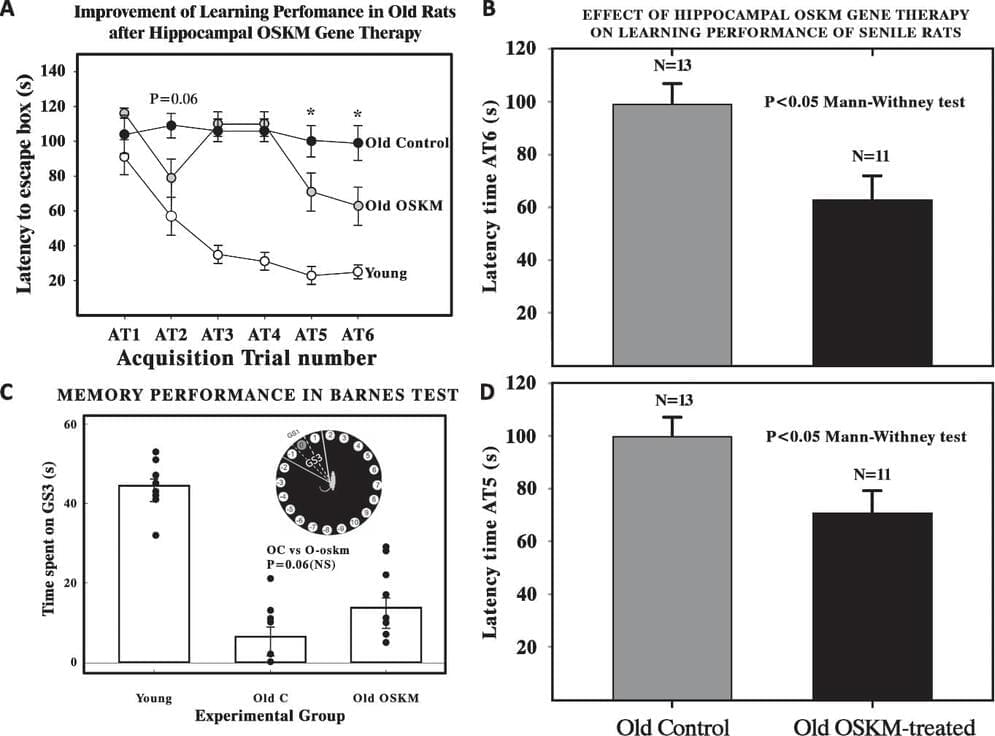
Several studies have indicated that interrupted epigenetic reprogramming using Yamanaka transcription factors (OSKM) can rejuvenate cells from old laboratory animals and humans. However, the potential of OSKM-induced rejuvenation in brain tissue has been less explored. Here, we aimed to restore cognitive performance in 25.3-month-old female Sprague–Dawley rats using OSKM gene therapy for 39 days. Their progress was then compared with the cognitive performance of untreated 3.5-month-old rats as well as old control rats treated with a placebo adenovector. The Barnes maze test, used to assess cognitive performance, demonstrated enhanced cognitive abilities in old rats treated with OSKM compared to old control animals. In the treated old rats, there was a noticeable trend towards improved spatial memory relative to the old controls.